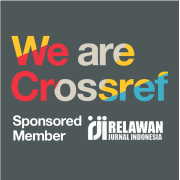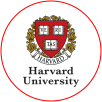MODEL PENGELOLAAN WAKAF PADA PUSAT PENGELOLAAN DANA SOSIAL (PUSPAS) UNIVERSITAS AIRLANGGA DALAM MENINGKATKAN PRODUKTIFITAS MUSTAHIK DI JAWA TIMUR
Abstract
This research aims to determine the model of university-based waqaf management in East Java. Higher Education as a booster for civilization change, can be used as a place to manage waqaf. Therefore, waqaf can be used as a means of improvement and enhancement of the quality of education, in order to create a more advanced civilization. This, can be used as an instrument in boosting community productivity. One of the tertiary institutions in Indonesia, which has implemented waqaf management in supporting all educational activities on campus as well as helping the surrounding community is Airlangga University. The research method used is qualitative, with a grounded research approach. The location of the research is Airlangga University, which is the only university in East Java that has officially become nadzir waqaf. In managing this waqaf, Airlangga Univeristy has appointed its work unit, namely the Social Fund Management Center (PUSPAS). Thus, PUSPAS carries out its duties to manage waqaf professionally. PUSPAS Programs focussed on several activities like Waqaf Rumah Amerta and Waqaf 1000 Movement (GEBU). These programs aims to produce productivity for all students, educators, and the community around Airlangga University in particular. In addition, all PUSPAS waqaf management activities can also have an impact on increasing the productivity of mustahik in East Java, in general
Keywords
Full Text:
PDFReferences
Bahjatulloh, Q. M. (2015). PENGEMBANGAN WAKAF TUNAI BERBASIS UMRAH DI PONDOK PESANTREN TA’MIRUL ISLAM SURAKARTA . Jurnal INFERENSI , Vol. 9, No. 1.
BPS. (2018). Potret Pendidikan Indonesia, Statistik Pendidikan 2018. Jakarta: Badan Pusat Statistik.
Carpenter, S. &. (2003). Qualitative Research in Nursing Advancing the Humanistic Imperative, 3nd. Philadephia: Lippincot Williams & Wilkins A Wolters Kluwer Company.
Haq, A. F. (2013). Hukum Perwakafan di Indonesia . Sidoarjo: CV Dwiputra Pustaka Jaya.
Kasdi, A. (2014). Model Pemberdayaan Wakaf Produktif di Indonesia . Jurnal ZISWAF , Vol. 1, No. 1.
Khairani, E. (2013). Strategi Pengembangan Wakaf Produktif . Yogyakarta: Cahaya Iman.
Lamuri, A. B. (2014). Pengelolaan Wakaf Al Khairat Palu Sulawesi Tengah. Jurnal Hunafa , Vol. 11, No. 2.
Muslich, A. (2016). Peluang dan Tantangan Dalam Pengelolaan Wakaf. Jurnal Muaddib , Vol. 06, No. 02.
Noeng Muhadjir, H. (2002). Metodologi Penelitian Kualitatif .Yogyakarta: Sarasin.
Noor, J. (2011). Metodologi Penelitian : Skripsi, Tesis, Disertasi & Karya Ilmiah . Jakarta: Prenada Media Group.
Qahaf, M. (2007). Manajemen Wakaf Produktif Jakarta : Khalifa.
Rozalinda. (2015). Manajemen Wakaf Produktif. Jakarta: Raja Grafindo Persada.
Sugiyono. (2011). Metode Penelitian Kuantitatif Kualitatif dan R&D. Bandung: Alfabeta.
DOI: http://dx.doi.org/10.31958/imara.v4i2.2410
Refbacks
- There are currently no refbacks.
Copyright (c) 2020 reni oktavia

This work is licensed under a Creative Commons Attribution-ShareAlike 4.0 International License.
INDEX BY:
Journal Imara distribute under a Creative Commons Attribution-NonCommercial 4.0 International License


















